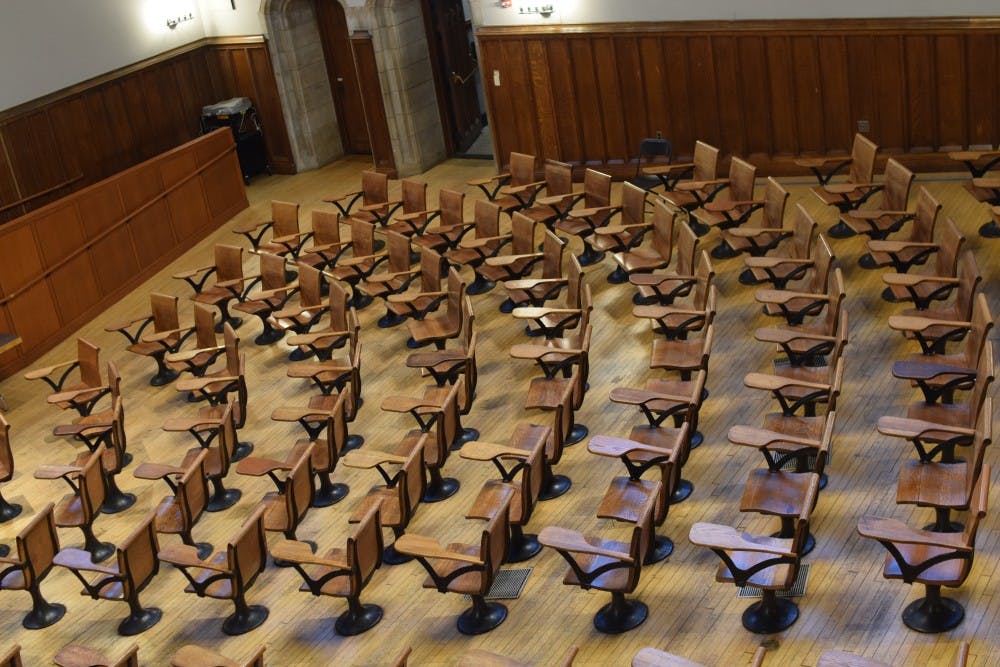As the spring semester commences, I want to reflect on the end of my first semester, particularly on final exams. For the first — and final — time, I returned to campus after winter break for one-and-a-half weeks of reading period, followed by another week and a half of final exams.
During reading period, I became overwhelmed, not by anxiety over my study schedule or my performances on finals themselves, but rather by ennui. Spending most of my time studying, even if my studying itself proved productive, felt unsatisfying. No, it was not the material I was studying that lost my interest, but the very notion of studying for days on end in the first place.
As with everyone in my class, taking finals for the first time posed a challenge. The experience, however, was particularly new to me. This last semester was the first time I have ever had a final exam week.
My high school — and, for that matter, my entire grade school — espoused progressive education, emphasizing kinesthetic experience above tests, grades, or numbers. The basic principle guiding my high school was that students, as leaders of their own education, should learn to think laterally and appreciate diverse perspectives on each topic, rather than studying rotely (hence the motto, “Learn to Think”).
Generally, class participation became as important — if not more so — than papers or tests, even in STEM classes. One’s ability to ask and answer questions that require piecing together content — which can be measured in class — was valued as equal to one’s ability to master each individual topic as demonstrated in a written assessment.
Now, I am deeply indebted to such focus on learning how to analyze information deeply. It has made me more capable of writing, participating in discussion, and problem-solving. My progressive education has made me curious and skeptical, always questioning the authority of unproven statements. Most importantly, though, this education has made me love learning.
This education, however, failed spectacularly in preparing me for final exams.
Until my arrival at Princeton, the only timed tests I had ever taken were SATs, APs, and the tests from the two math classes I enrolled in at a university. While these tests were technically midterms and finals, they occurred several weeks before the mid- and endpoints of my high school’s semesters, so they did not require additional study after I finished the coursework.

Teachers at my high school, who were granted the freedom to structure their own curricula, assigned untimed tests on an irregular basis, if at all. The semesters either ended abruptly, simply continuing the normal pace of learning material until vacation commenced, or else proceeded with forays into advanced topics if the teacher finished the curriculum early.
I lost a sense of purpose when learning transitioned to studying. Reviewing practice problems and memorizing formulas lacked the free creative expression that made problem sets and papers appealing. The additional pressure of the impending finals masked any remaining pleasure in learning for me.
I realize, however, that my dissatisfaction during reading period was largely my own fault. After experiencing finals for the first time, I now know that I should not let time limits or grade percentages distract me in any way from appreciating the beauty of the problems asked on the finals themselves. Practice problems can still be pleasurable to solve, too, if we do not allow the fact that they are for practice obscure such pleasure.
My great discovery of my first semester of college, thus, has been that nothing should impede learning for the sake of learning, not even finals.

Ollie Thakar is a first-year from Baltimore, M.D. He can be reached at othakar@princeton.edu.








